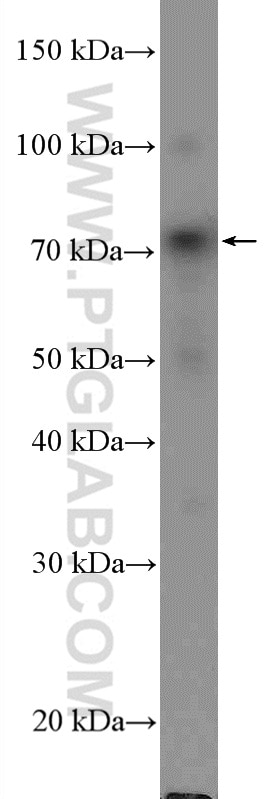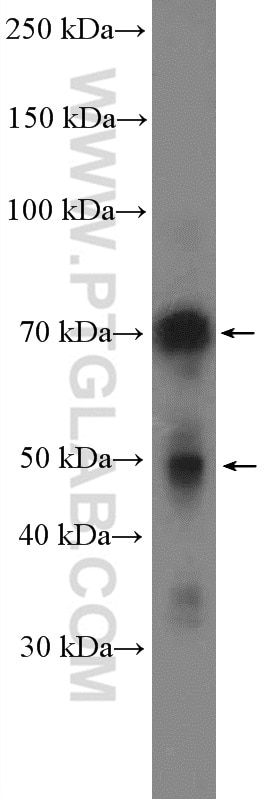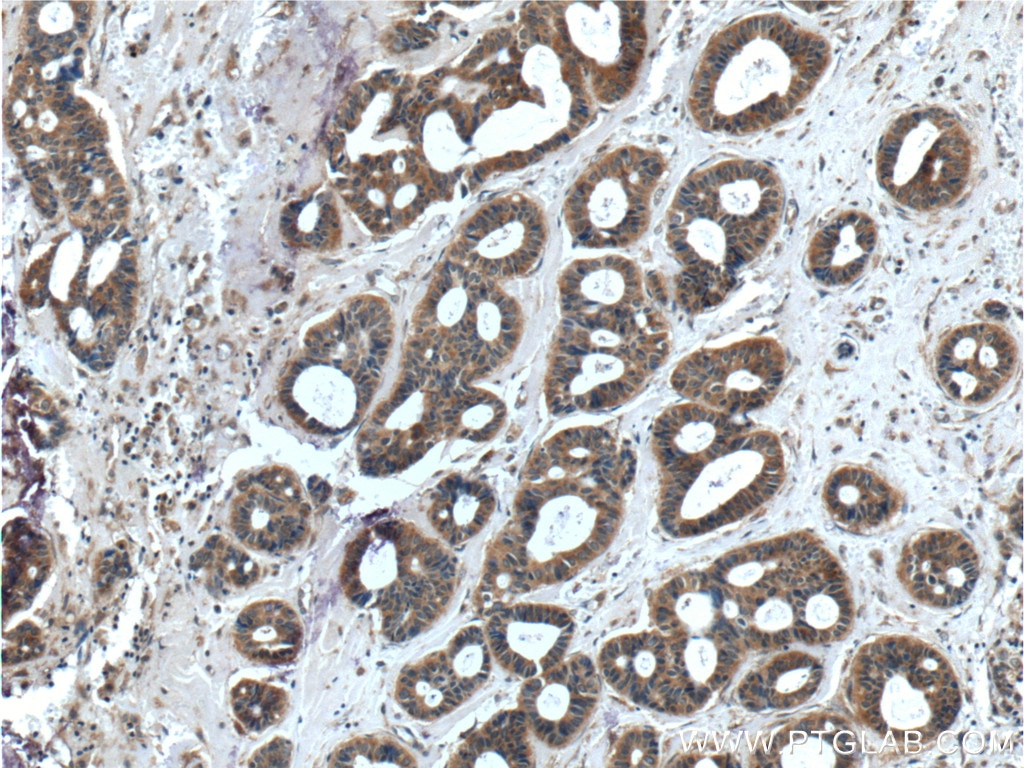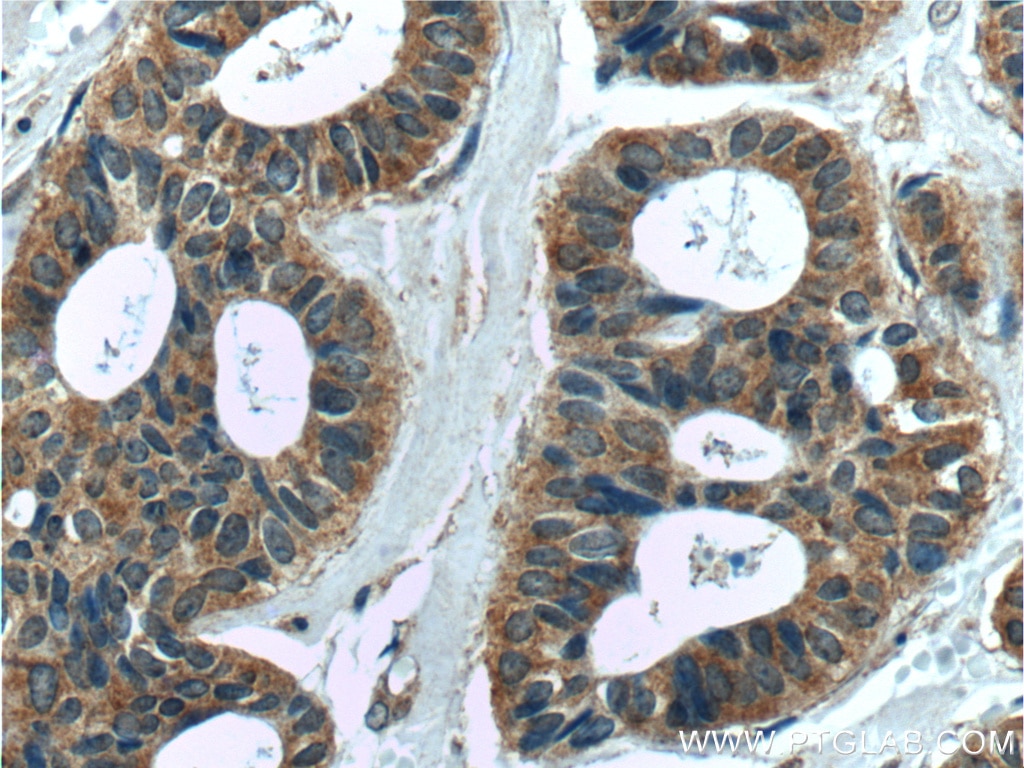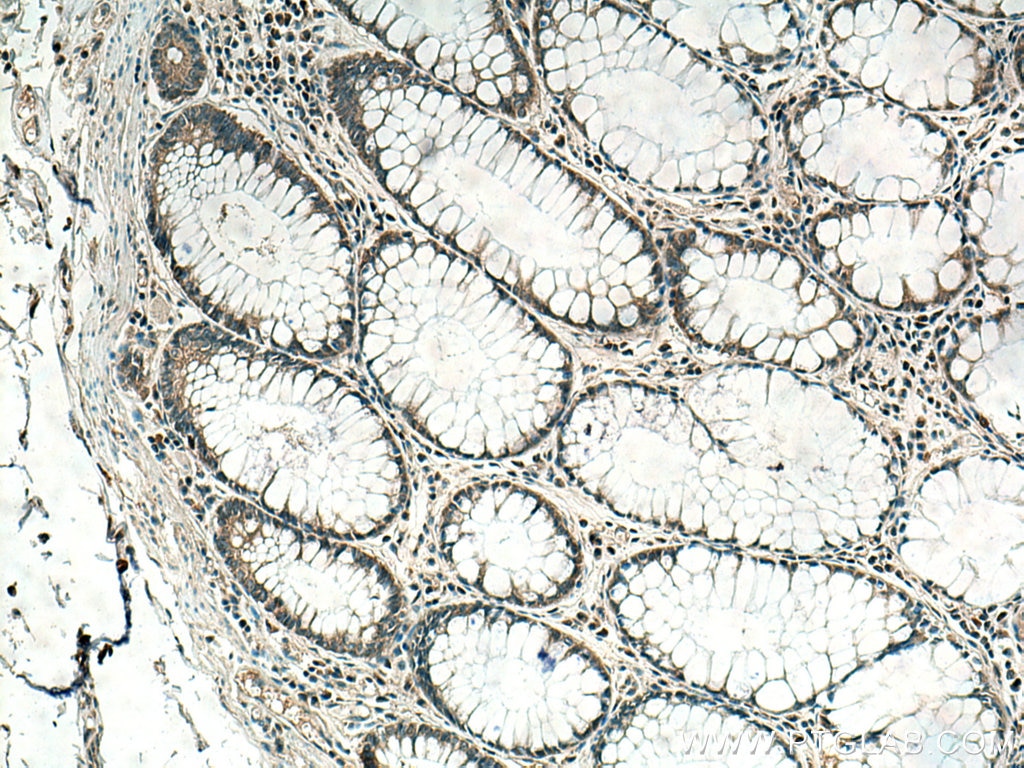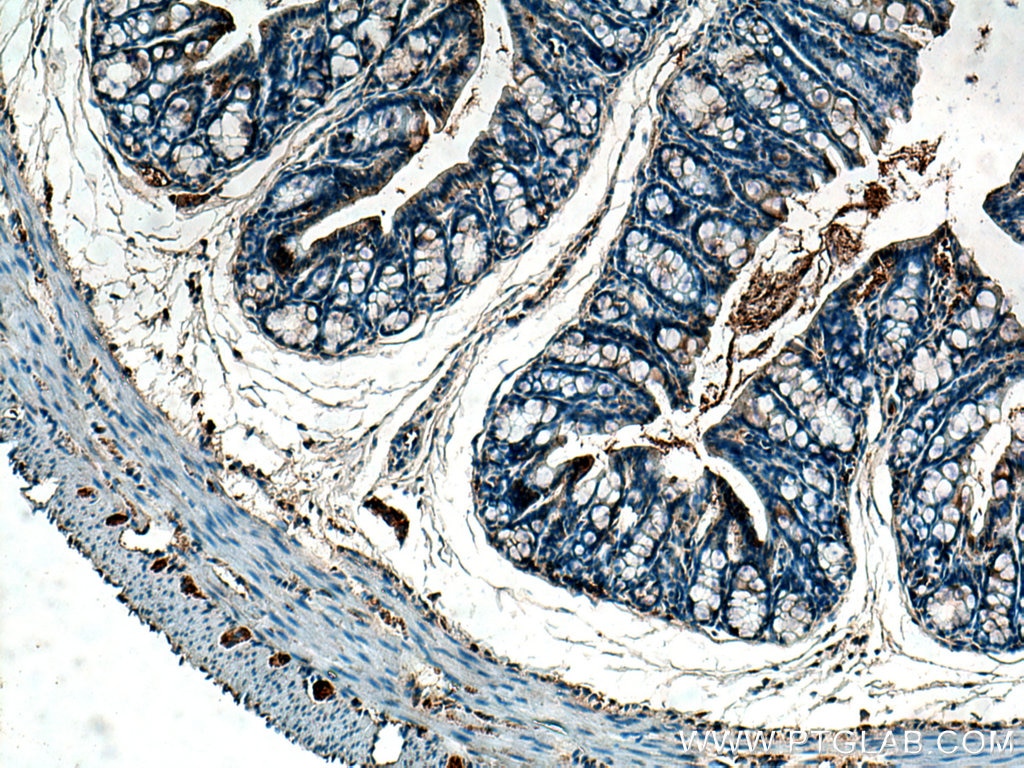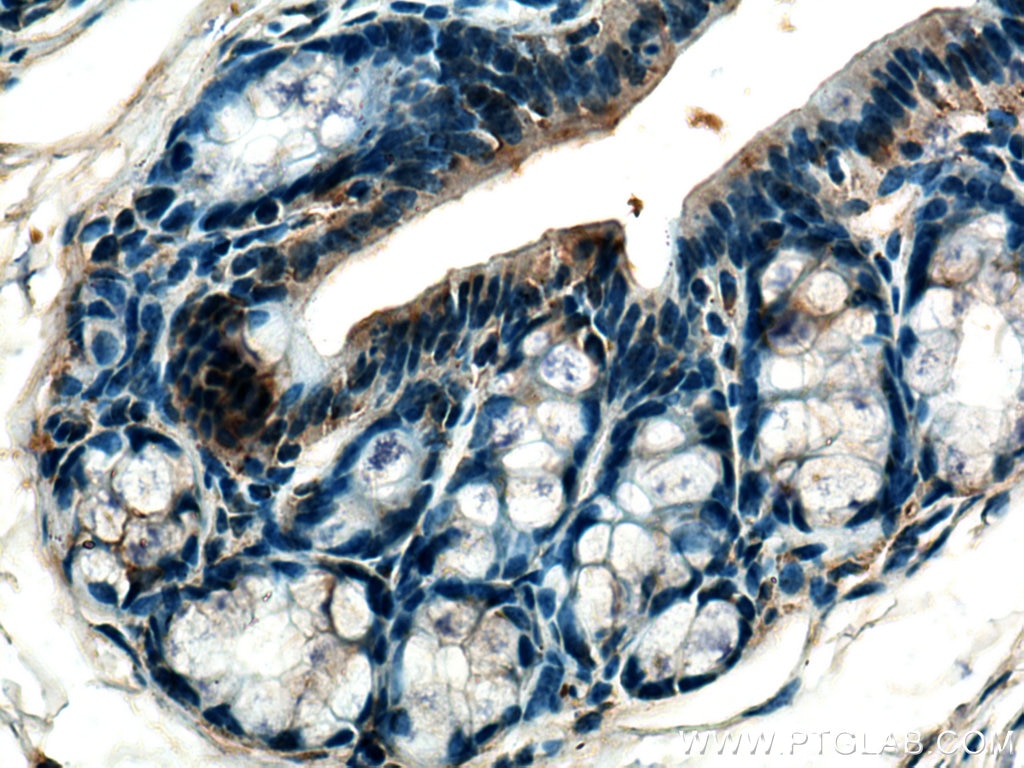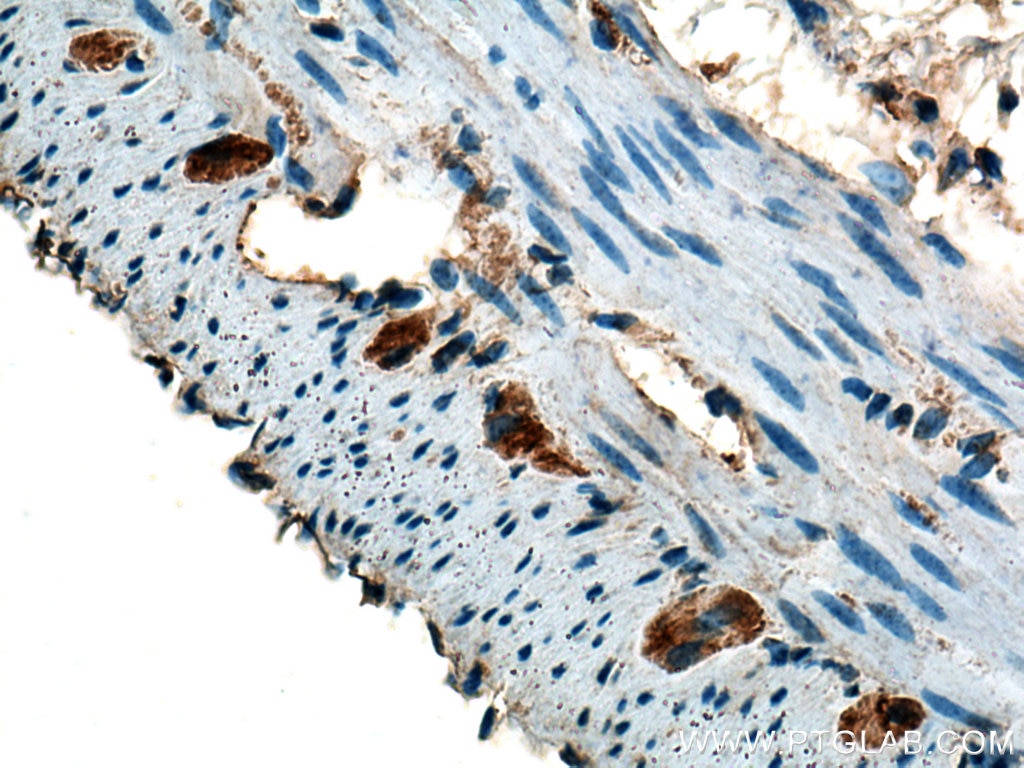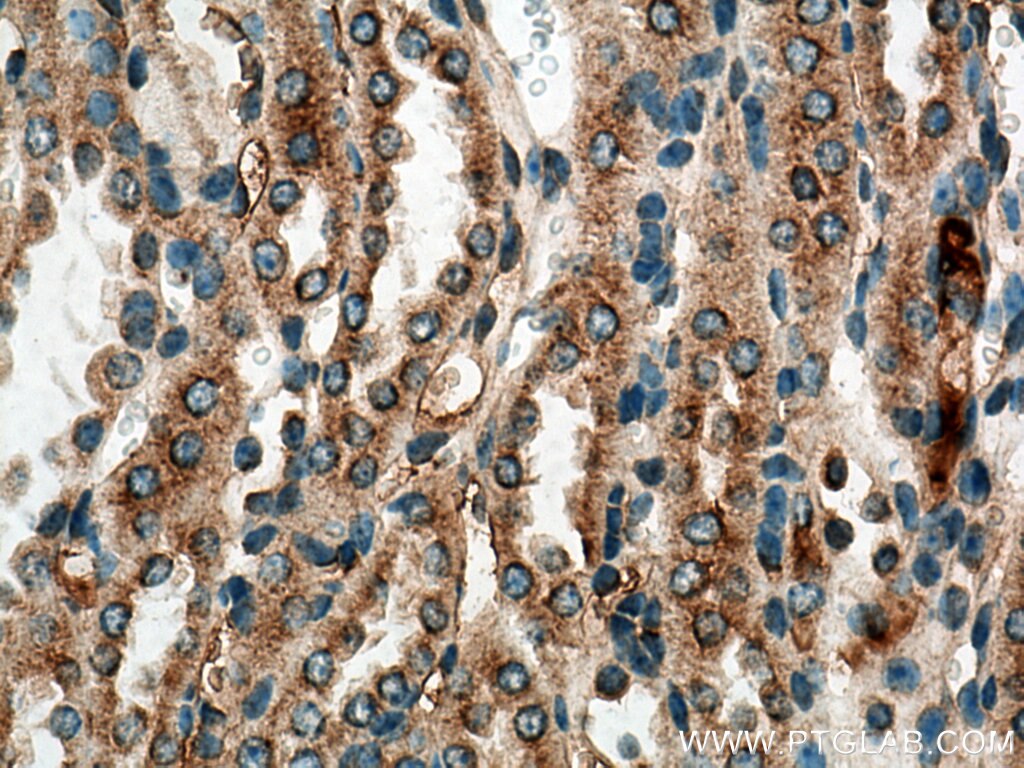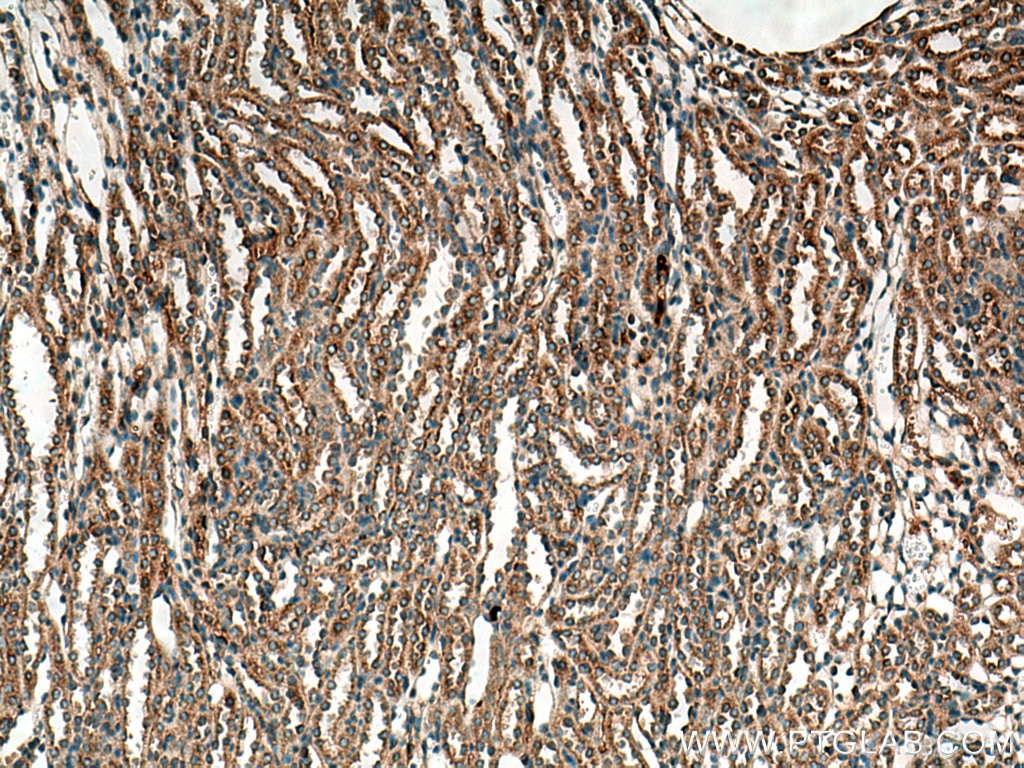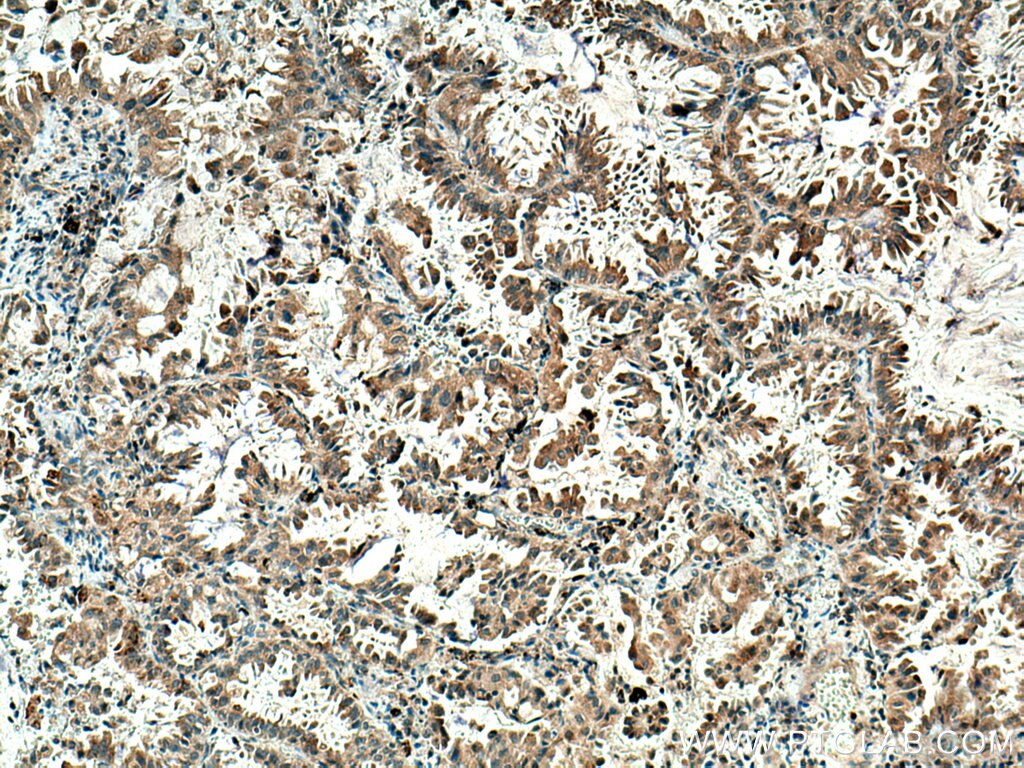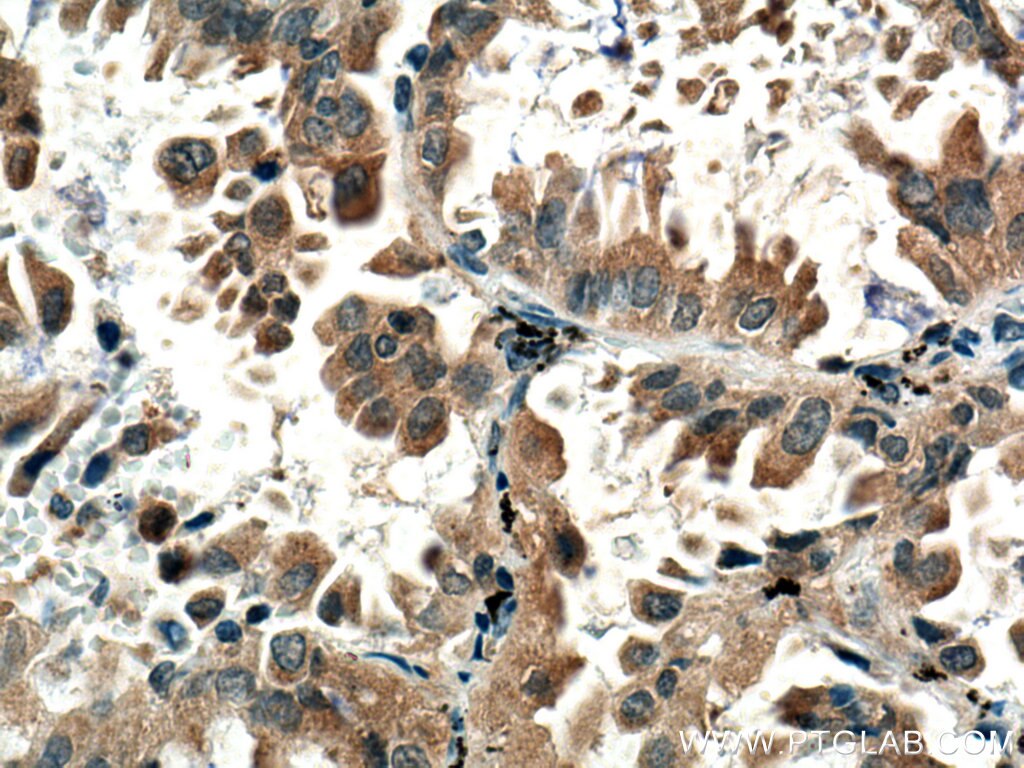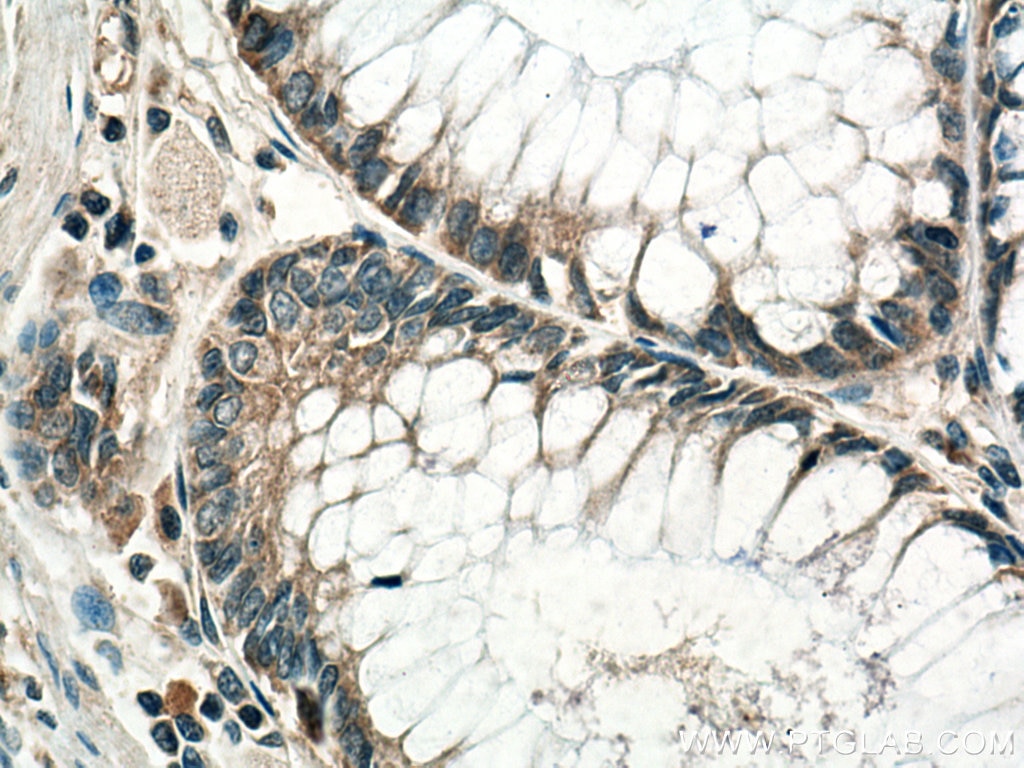Anticorps Polyclonal de lapin anti-MELK
MELK Polyclonal Antibody for WB, IHC, ELISA
Hôte / Isotype
Lapin / IgG
Réactivité testée
Humain, souris
Applications
WB, IF, IHC, CoIP, ELISA
Conjugaison
Non conjugué
N° de cat : 11403-1-AP
Synonymes
Galerie de données de validation
Applications testées
| Résultats positifs en WB | cellules Jurkat, cellules HeLa, cellules K-562 |
| Résultats positifs en IHC | tissu de cancer du sein humain, tissu de cancer du côlon humain, tissu de cancer du poumon humain, tissu de côlon de souris, tissu rénal de souris il est suggéré de démasquer l'antigène avec un tampon de TE buffer pH 9.0; (*) À défaut, 'le démasquage de l'antigène peut être 'effectué avec un tampon citrate pH 6,0. |
Dilution recommandée
| Application | Dilution |
|---|---|
| Western Blot (WB) | WB : 1:500-1:1000 |
| Immunohistochimie (IHC) | IHC : 1:50-1:500 |
| It is recommended that this reagent should be titrated in each testing system to obtain optimal results. | |
| Sample-dependent, check data in validation data gallery | |
Applications publiées
| WB | See 1 publications below |
| IHC | See 3 publications below |
| IF | See 1 publications below |
| CoIP | See 1 publications below |
Informations sur le produit
11403-1-AP cible MELK dans les applications de WB, IF, IHC, CoIP, ELISA et montre une réactivité avec des échantillons Humain, souris
| Réactivité | Humain, souris |
| Réactivité citée | Humain |
| Hôte / Isotype | Lapin / IgG |
| Clonalité | Polyclonal |
| Type | Anticorps |
| Immunogène | MELK Protéine recombinante Ag1897 |
| Nom complet | maternal embryonic leucine zipper kinase |
| Masse moléculaire calculée | 651 aa, 75 kDa |
| Poids moléculaire observé | 50-70 kDa |
| Numéro d’acquisition GenBank | BC014039 |
| Symbole du gène | MELK |
| Identification du gène (NCBI) | 9833 |
| Conjugaison | Non conjugué |
| Forme | Liquide |
| Méthode de purification | Purification par affinité contre l'antigène |
| Tampon de stockage | PBS avec azoture de sodium à 0,02 % et glycérol à 50 % pH 7,3 |
| Conditions de stockage | Stocker à -20°C. Stable pendant un an après l'expédition. L'aliquotage n'est pas nécessaire pour le stockage à -20oC Les 20ul contiennent 0,1% de BSA. |
Informations générales
MELK is involved in various processes such as cell cycle regulation, self-renewal of stem cells, apoptosis and splicing regulation. It also plays a key role in cell proliferation and carcinogenesis, and it is required for proliferation of embryonic and postnatal multipotent neural progenitors.
Protocole
| Product Specific Protocols | |
|---|---|
| WB protocol for MELK antibody 11403-1-AP | Download protocol |
| IHC protocol for MELK antibody 11403-1-AP | Download protocol |
| Standard Protocols | |
|---|---|
| Click here to view our Standard Protocols |
Publications
| Species | Application | Title |
|---|---|---|
Int J Oncol MELK predicts poor prognosis and promotes metastasis in esophageal squamous cell carcinoma via activating the NF‑κB pathway. | ||
Med Sci Monit Up-Regulated Maternal Embryonic Leucine Zipper Kinase Predicts Poor Prognosis of Hepatocellular Carcinoma Patients in a Chinese Han Population. | ||
Drug Des Devel Ther A Novel Tetramethylpyrazine Chalcone Hybrid- HCTMPPK, as a Potential Anti-Lung Cancer Agent by Downregulating MELK |
